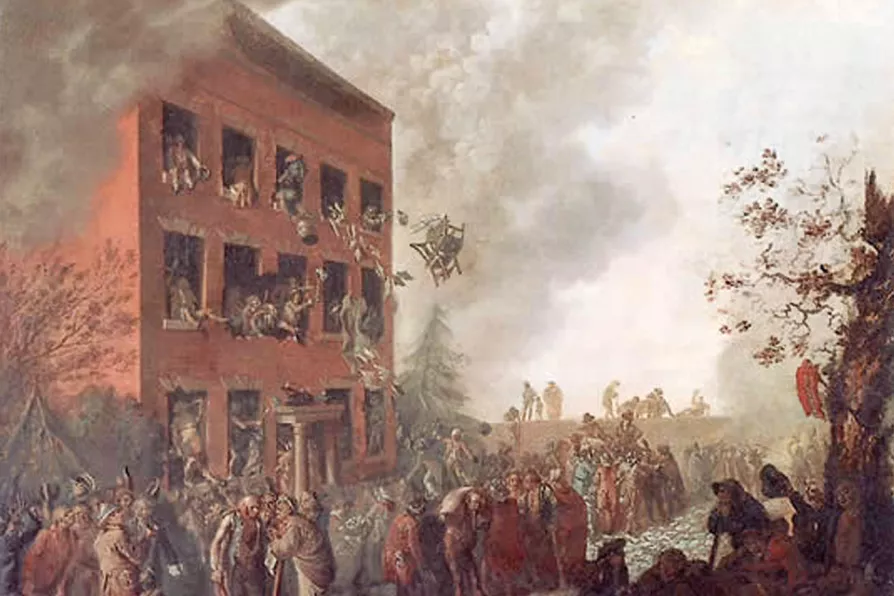Rubio's disturbing speech in Munich exposed the West's brutal plans — more imperialism, more colonialism, more white supremacy, says ROGER McKENZIE

 REACTIONARY RAMPAGE:
The house of radical dissenter
Joseph Priestley is destroyed
by a right-wing mob during
the 1791 Birmingham riots
REACTIONARY RAMPAGE:
The house of radical dissenter
Joseph Priestley is destroyed
by a right-wing mob during
the 1791 Birmingham riots
THE fascist-inspired riots of early August raised again the question of how protest occurs and what form it takes.
Some Tory leadership contenders made entirely specious comparisons with the huge and peaceful marches on Gaza that have taken place since October 2023.
Two entirely different things were being conflated but historically that wasn’t always the case. Until the last years of the 18th century, a riot was the most common and most frequent form of protest.
Before trade unions and working-class political organisations had developed there existed, for example, collective bargaining by riot. An employer would be besieged by workers until they addressed wage demands.

Inspired by a hit TV show, KEITH FLETT takes a look at the murky history of undercover class war

The government cracking down on something it can’t comprehend and doesn’t want to engage with is a repeating pattern of history, says KEITH FLETT

While Hardie, MacDonald and Wilson faced down war pressure from their own Establishment, today’s leadership appears to have forgotten that opposing imperial adventures has historically defined Labour’s moral authority, writes KEITH FLETT

DAVID RABY reports on the progressive administration in Mexico, which continues to overcome far-left wreckers on the edges of a teaching union, the murderous violence of the cartels, the ploys of the traditional right wing, and Trump’s provocations









